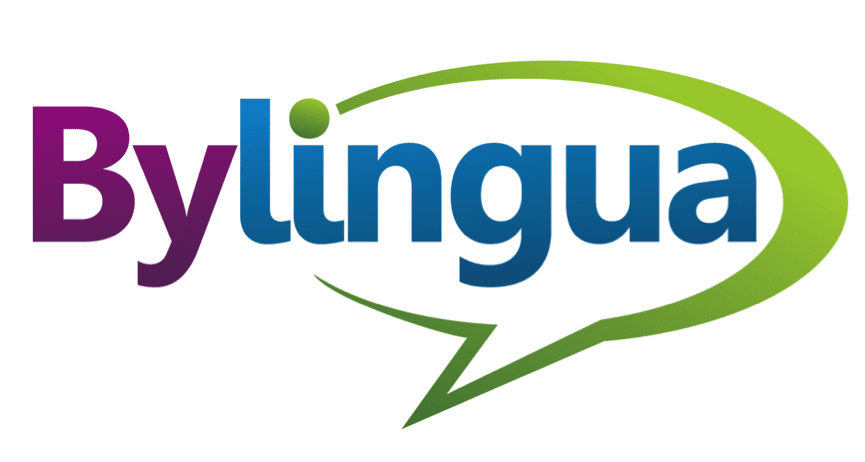日本語タイトル:「ネイティブスピーカーから、語学学習に関するアドバイスをもらうべきでしょうか?」

日本では、生徒は先生からのアドバイスをとても真面目に受け取ります。
先生としては、これは素晴らしいことです。
僕が生徒にどのように学習するべきかをアドバイスし、生徒は言われた通りにする。そして生徒は上達する、みんなが幸せです!
しかし、生徒として、注意しなければならないこともあると、呼びかけておきたいと思います。
主に、誰のアドバイスを聞くかには、気を付けて欲しいということです。
どういう意味でしょうか?
学習者が英語上達に関してアドバイスを求めることは自然なことです。でも、これには1つの大事な前提がなければならないのです。
全てのネイティブスピーカーからの英語学習に関するアドバイスは役に立つ、という。
僕が初めて日本にやって来た時のことを覚えています。
英会話講師として働き始めた最初の週から、単語の学習や文法のポイントについてアドバイスを求められました。
僕は「先生」だったのですから、これは当然のことです。
しかし、本当のことを言うと、イギリスでは学校で英語の文法は学習しないのです(アメリカでは、学校で文法の授業があると聞いたことがあります)。
日本に住みながら、僕は英文法のルールについて独学で学びました。
僕のティーチング経験が増えるにつれ、英文法に対する理解も深まりました。
単語、発音、学習に関する一般的なアドバイスについては、僕の生徒はラッキーだったと言わざるを得ません。
僕が「良い先生だ」と自慢したい訳ではなく、僕の過去の経験が役に立った、ということです。
日本に来る前、僕にはすでに語学を学習した経験がありました(今では、英語を含め7、8ヶ国語話すことが出来ます)。
この経験のおかげで、僕は生徒たちの気持ちを理解し、自分がフランス語、スペイン語、イタリア語、少しの日本語を習得する上での失敗や成功から、的確なアドバイスをすることが出来たのです。
日本語(ポルトガル語、ギリシャ語、韓国語も多少)の学習も継続しながら、今では教えた生徒の数は1000人近くに達しています。そして、僕の生徒は皆、10年間のティーチング経験、また語学学習者としては20年間の経験を凝縮したアドバイスを受けられるのです。
なぜ、これは重要なのでしょうか?
決して、僕がティーチャーとして完璧だと言っているわけではありません。
むしろ、まだまだそこからは程遠いくらいです。
ですが、僕は生徒の立場を理解することが出来るのです。これは、日本にいる多くのネイティブの英語講師が出来ないことです。
もし、あなたが英語が話せる日本人に英語学習についてのアドバイスを求めた場合、その人の経験からアドバイスをしてくれるはずです。
でも、英語のネイティブスピーカーに質問した場合、彼らのアドバイスはもっと良いモノであると思ってしまいがちです。
だって、彼らはその言語を「マスター」しているわけですから。そうですよね?
そう、もちろんそうです。でも、僕たちネイティブスピーカーは英語を母国語として、学校に行ったり、スポーツをしたり、化学を勉強したり、デートしたりすることから学習しました。第二外国語として習得する方法とは全く違うのです。
数えきれないほどの会話をすることで、言葉のニュアンスや、良く使われるパターンや言い方、一緒に使われる単語、状況によって使い分ける文法やフレーズなどを理解してきたのです。
ネイティブスピーカーにとって、英語のインプットの多くは本やテレビです。
では、平均的なネイティブスピーカーは英語学習に関してどのように勉強することをアドバイスするでしょうか。もちろん、本やテレビです。
本やテレビは役に立つ学習教材ではありますが(自分の好きなテレビ番組や本を使った英語学習の仕方については、ブログ記事として今後投稿しますので、楽しみにしていてください!)、文法に関する知識が必要な人には適した教材とは言えません。
簡単に言えば、ネイティブスピーカー向けの本やテレビなどを使った学習が適しているのは、英語をある程度のレベルまで理解した人なのです。
ネイティブスピーカーである私たちは、下記のように英語を習得しました。
-生後1−2年は、言葉を発さず、聞いているのみ
-英語のルールを理解しながら、ブロークンイングリッシュで話す
-単語力を増やすための読書
-言語表現を磨くためのライティング
平均的に、ネイティブスピーカーが流暢な英語のスピーカーになるまでに11年かかっています。
しかし、日本の英語学習たちは今でも「ネイティブの真似をしなさい」と言われています。
これは、どういう意味なのでしょうか?
ネイティブではない人が英語を学習する場合、ネイティブスピーカーの学習スタイルを真似する以上のことが出来るのです。
また、ネイティブスピーカーの学習スタイルでさえ、役に立つとは限らないのです。
では、誰のアドバイスを真剣にきくべきかは、どうやって判断するのでしょうか?
突き詰めて考えると、英語を話す人は下記の5つのカテゴリーに分けることができます。
1.英語が話せる日本人(バイリンガル、またはマルチリンガル)
2.ネイティブスピーカー(英語しか話さないモノリンガル)
3.ネイティブスピーカー(バイリンガル、またはマルチリンガル)
4.ネイティブの英語講師(英語しか話さないモノリンガル)
5.ネイティブの英語講師(バイリンガル、またはマルチリンガル)
これは、どのカテゴリーにいるのが良いのか悪いのかという話ではなく、その人からのどんなアドバイスを真摯に受け取るべきかを判断する大まかなガイドになるはずです。
下記の図を見ながら、上記カテゴリーのそれぞれの人がどのようなアドバイスを得意とするかを見てみましょう。

もちろん、上記のルールは一般的なものです。英語しか話さないネイティブの外国人からのアドバイスが、とても役に立つ場合もあるでしょう。
同様に、たくさんの外国語を話すネイティブの英語講師からもらったアドバイスがあまり役に立たない場合もあるかもしれません。
でも、過去に他の言語を学習しているという経験を持っている人が役に立たないアドバイスをする可能性は、極めて低いはずです。
もらったアドバイスを全て試してみるのも良いでしょう。でも、あまり自分にとって良くないものには、固執しないことです。
もし何か質問があったり、あなたが自分で発見した英語(または他の言語の)学習のコツがあったりしたら、是非下記のコメント欄からシェアしてください!僕も含めて、読者の皆さんの役立ちますから!
Good luck!

In Japan, students take teachers’ advice very seriously.
As a teacher, this is wonderful.
I recommend how a student should study, they do it, they improve – everyone is happy!
However, from a student’s point of view, I wanted to write a few words of caution
Namely; Be careful who you listen to for English advice.
What do I mean?
Naturally learners want to get advice to improve their English, but this comes with a key assumption;
All native speakers are useful for language learning advice.
I remember when I first came to Japan. From my very first week, I was asked for advice on vocabulary learning, grammar points, etc.
This seems natural since I was a ‘teacher’.
But in truth, in England we don’t study English grammar in school (I’ve heard they still do in America).
I taught myself the rules of English grammar while living in Japan.
As my teaching experience increased, so did my understanding of English grammar.
For vocabulary, pronunciation, and learning tips in general however, I’m happy to say that my students were quite lucky.
I don’t mean that as a boast about how good I am, but rather because of my past experience.
Prior to coming to Japan, I had already had experience studying four languages (now 7, 8 if you include English). This meant that I could relate to learners of English and give them the benefit of my trial-and-error experience with French, Spanish, Italian, and to a lesser extent, Japanese.
As I’ve learned more Japanese (along with small amounts of Portuguese, Greek, and Korean), and have taught probably close to 1,000 Japanese learners at this point.
All of my students get the benefit of 10 years of experience as a teacher, along with almost 20 as a learner of languages.
Why is this important?
None of this is to say that I’m perfect – far from it.
But it does mean that I can understand a student’s situation. Something that the vast majority of English teachers living in Japan cannot do.
When you ask a native-Japanese English speaker how to learn English, you can guarantee that their advice comes from their experience.
But when you ask a native English speaker, usually we expect their answer to be even better.
After all, they’ve ‘mastered’ the language, right?
Yes, they have, but ‘how’ they learned as their first language – by going to school, interacting, playing sports, learning Chemistry, dating, etc – is completely different.
Thousands upon thousands of interactions have helped them (us) to understand the nuances of words, common patterns of speech and pairings, situational grammar and phrases, etc.
Where does a lot of our input as native speakers come from? – books and TV.
So, what does the average native speaker advise for someone learning a language? – books and TV, of course.
While these can be useful resources (watch out for a post coming soon about how you can use your favourite TV shows and books to boost your English), they are rarely appropriate for the typical learner who needs to improve their grammar.
Simply put, content designed for native speakers usually isn’t helpful for non-natives until they have reached a reasonable level of understanding of the language.
As native speakers, we:
1. Listen with almost no words for 1-2 years
2. Speak in broken English as we start applying rules (I goed to school yesterday, etc)
3. Read to build vocabulary
4. Write to improve our expression of language
On average, it takes a native speaker about 11 years to become proficient as a speaker of English.
But we’re still told – copy native speakers.
So, what does all of this mean?
It means that as non-native speakers you have key advantages that go beyond simply copying native speaker studying styles – and even those styles may not be very helpful.
So, how do we know who to take advice from?
In essence, we can break English speakers into 5 categories:
Japanese-natives who are proficient in English (bi/multilingual)
Native speakers (monolingual)
Native speakers (bi/multilingual)
Native speaker teachers (monolingual)
Native speaker teachers (bi/multilingual)
None of these categories are good or bad, but it should be a rough guide about who you should listen to and for what kind of advice.
Let’s look at it again using this table with the advice they are each good at or bad at:
Of course, these rules are general. You may get some advice from a monolingual native speaker that helps you a lot.
Likewise, you may get really unhelpful advice from a native speaker multilingual teacher.
However, due to their past experience both with other languages, and their own, the risk is significantly lower.
Feel free to try all advice you receive – but be sure to move away from it if it doesn’t seem to be helping you very much.
If you have any questions or tips to share that you’ve personally found useful for studying English (or another language), write a comment below so that everyone can benefit (me included).
Good luck!

